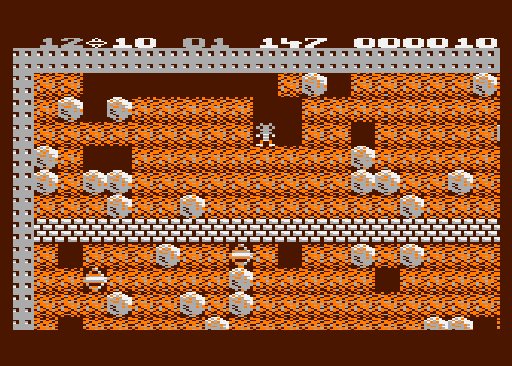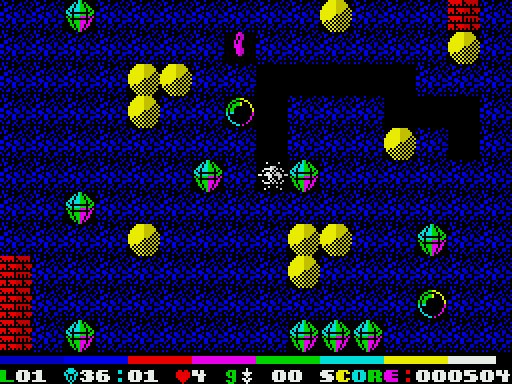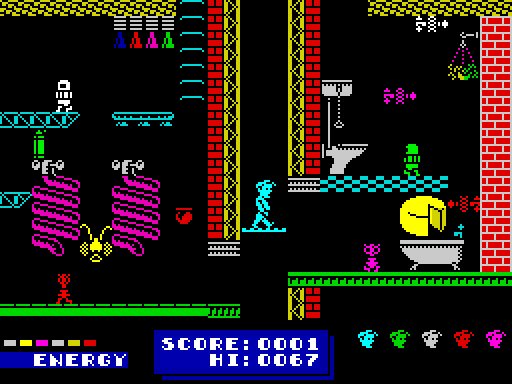Glory to the epigones, or the Great versus the best
I usually try to write on business, but sometimes you can think about the abstract. Not so long ago, a good (and perhaps one of a kind) book 1001 Video Games You Must Play Before You Die fell into my hands, the authors of which undertook the titanic work of isolating the best, in their opinion, thousands of games in the entire history of the industry. Almost all well-known platforms have been taken into account, from the arcade machines of the seventies to the Xbox360 and iPhone. Of course, any hit parade (even if there are already 1001 positions in it) is subjective, and each of us may not be surprised to find our favorite game in it. The authors clearly favor the last decade, which has left half of the entire book. On the other hand, to their credit, the matter is not limited to the declared “1001” format, and comments like “this game had such and such a predecessor, and later a similar idea was embodied in such and such a project”, which essentially expand the main list, often slip through. However, another feature that struck me was that I think it reflects any "lists of the best" of anything,
I guess I understand better in games than in books, music or movies, although I try to fill in the gaps, so I try not to leave the main line too often. (Given that there have been fewer games created in history than, for example, books, it is much easier to capture them with a glance).
My generation, whose childhood and adolescence fell on the collapse of the Iron Curtain, had an interesting effect: the games that poured from abroad “compressed” into a single ball, and we did not perceive them as something consistently developing. Let's say our foreign peers, having played enough in Super Mario Bros. (1985), observed an avalanche of platformers growing like mushrooms after rain. At first, we had nothing, and then we got everything at once, and in this sense, the plumber Mario was in our hearts a direct competitor to Chip and Dale from the game of the same name (1990).
It is especially interesting in this regard to study the ZX Spectrum. Not only because I personally love him, but because the case is completely clean: the platform lived in almost unchanged condition for about 10 years, by the beginning of the 90s all the main commercial games had already come out (later Russian programmers would catch up and create some masterpieces) , and each self-respecting sinclerist had a huge catalog of games. Still, 10-12 games would fit on a regular tape cassette, and cassettes were easily copied. They played what they had to do on consoles (not everyone could afford to buy a ton of cartridges), but the PC didn’t “squeeze” time, because the hardware capabilities have changed so much in ten years that one Alley Cat of the first half can be put on one board eighties with Dune II (1992) is decidedly impossible.
However, I was distracted. Flipping through the book, I (expectedly) found Super Mario Bros., Jet Set Willy and Boulder Dash there. However, he found neither Chip & Dale, nor Darkwing Duck, nor Dynamite Dan, nor Earth Shaker. For me, these are games of the same era, inspired by their predecessors, only more interesting, more fun, more diverse. Leave aside Super Mario, which has a lot of loyal fans, and focus on the Boulder Dash - Earth Shaker and Jet Set Willy - Dynamite Dan pairs.
The second pair members are better than the first in all respects except one. They are not great. The authors of Boulder Dash came up with a great idea and suggested a rather modest implementation, which I tried to play several times, but could not get much pleasure. About the same can be said about the Jet Set Willy. But the epigones did not doze off: not only Tetris and Arkanoid fell a lot of imitations; albeit not in that volume, but Boulder Dash and Jet Set Willy spawned genres. However, the discoverer of the genre and the peak of the genre are not exactly the same thing.
If I read a book on the history of art (anyone), it is always interesting to know who paved the way for one direction or another. But no less interesting is what is best spawned by any time. I don’t presume to talk about literature and cinema, but the situation is almost unambiguous in games: look at any list like “the best games of the 80s” and you will actually see the “greatest games of the 80s”. But I'm not a game historian; I just want to play the best and most unusual that has been created. In this sense, I don’t care, in front of me is the great Boulder Dash or the Earth Shaker pygmy epigon - this is one era, one platform (if you take the Spekrumov port of Boulder Dash), and it’s about the best products from the point of view of me the current, not burdened by personal experience of playing the game the first Boulder Dash in the years when there wasn’t any genre yet,
Do you think that the genre-based game Boulder Dash really raised the bar so high that it still wanders from list to list? Or (I'm afraid to encroach on the holy), the great mover of the fantasy genre, Professor Tolkien, from the first call wrote such an outstanding book that it will be filmed with great success even today? But what about epigones? I want a rating of the best, not great! ..
I guess I understand better in games than in books, music or movies, although I try to fill in the gaps, so I try not to leave the main line too often. (Given that there have been fewer games created in history than, for example, books, it is much easier to capture them with a glance).
My generation, whose childhood and adolescence fell on the collapse of the Iron Curtain, had an interesting effect: the games that poured from abroad “compressed” into a single ball, and we did not perceive them as something consistently developing. Let's say our foreign peers, having played enough in Super Mario Bros. (1985), observed an avalanche of platformers growing like mushrooms after rain. At first, we had nothing, and then we got everything at once, and in this sense, the plumber Mario was in our hearts a direct competitor to Chip and Dale from the game of the same name (1990).
It is especially interesting in this regard to study the ZX Spectrum. Not only because I personally love him, but because the case is completely clean: the platform lived in almost unchanged condition for about 10 years, by the beginning of the 90s all the main commercial games had already come out (later Russian programmers would catch up and create some masterpieces) , and each self-respecting sinclerist had a huge catalog of games. Still, 10-12 games would fit on a regular tape cassette, and cassettes were easily copied. They played what they had to do on consoles (not everyone could afford to buy a ton of cartridges), but the PC didn’t “squeeze” time, because the hardware capabilities have changed so much in ten years that one Alley Cat of the first half can be put on one board eighties with Dune II (1992) is decidedly impossible.
However, I was distracted. Flipping through the book, I (expectedly) found Super Mario Bros., Jet Set Willy and Boulder Dash there. However, he found neither Chip & Dale, nor Darkwing Duck, nor Dynamite Dan, nor Earth Shaker. For me, these are games of the same era, inspired by their predecessors, only more interesting, more fun, more diverse. Leave aside Super Mario, which has a lot of loyal fans, and focus on the Boulder Dash - Earth Shaker and Jet Set Willy - Dynamite Dan pairs.
| Boulder dash | Earth shaker |
 |  |
| Jet set willy | Dynamite dan |
 |  |
The second pair members are better than the first in all respects except one. They are not great. The authors of Boulder Dash came up with a great idea and suggested a rather modest implementation, which I tried to play several times, but could not get much pleasure. About the same can be said about the Jet Set Willy. But the epigones did not doze off: not only Tetris and Arkanoid fell a lot of imitations; albeit not in that volume, but Boulder Dash and Jet Set Willy spawned genres. However, the discoverer of the genre and the peak of the genre are not exactly the same thing.
If I read a book on the history of art (anyone), it is always interesting to know who paved the way for one direction or another. But no less interesting is what is best spawned by any time. I don’t presume to talk about literature and cinema, but the situation is almost unambiguous in games: look at any list like “the best games of the 80s” and you will actually see the “greatest games of the 80s”. But I'm not a game historian; I just want to play the best and most unusual that has been created. In this sense, I don’t care, in front of me is the great Boulder Dash or the Earth Shaker pygmy epigon - this is one era, one platform (if you take the Spekrumov port of Boulder Dash), and it’s about the best products from the point of view of me the current, not burdened by personal experience of playing the game the first Boulder Dash in the years when there wasn’t any genre yet,
Do you think that the genre-based game Boulder Dash really raised the bar so high that it still wanders from list to list? Or (I'm afraid to encroach on the holy), the great mover of the fantasy genre, Professor Tolkien, from the first call wrote such an outstanding book that it will be filmed with great success even today? But what about epigones? I want a rating of the best, not great! ..
